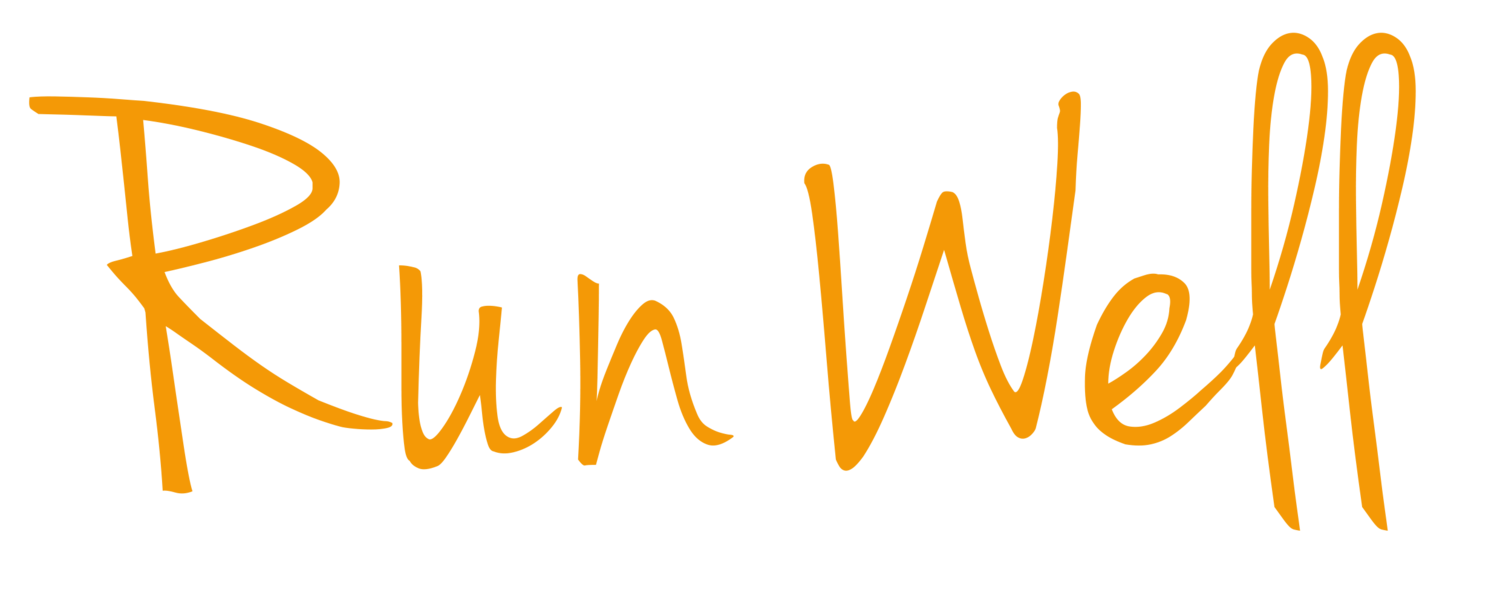At last year's Melbourne Marathon, nearly 1600 entrants or 20% did not finish!
Here's the 5 biggest mistakes that you need to avoid to ensure your success at your next marathon, and be a finisher!
Which marathon finisher will you be?
An alarming statistic, but what's more surprising to people I speak to is that many of those non finishers are actually non starters. It is well known that the toughest part of the marathon is getting through the training, to get you to the start line well prepared and injury free.
As an Osteopath, with over 24 years of clinical experience, I've seen & treated many injured runners training for the marathon. And as a running coach it's important to find out how these runners have been training in order to understand why they have ended up in my clinic room. As a result of this type of study, I can share with you the top 5 reasons why many runners don't make it.
1. Fail to Plan : Many underestimate the time & commitment that is required to fully prepare your body to cover the marathon distance. The longer you have been running regularly for, the better your start position, but generally speaking you want to commit at least 6 months of regular running to prepare for the marathon. This will give you a 6-week period of easy running before your program starts, getting used to running 3-4 times per week before commencing an 18- 20 week program of slow, progressive build up of mileage, running 4-6 times per week..
2. The Right Program : An appropriate program designed for you will take into account your running ability, history, lifestyle, and importantly your running goals & needs. Your program will include the appropriate number of runs, types of runs and mileage that suits your ability & goals and to ensure you are well prepared. This means doing enough running at the right pace without doing too little or too much!
3. Paces : Many runners run their long runs too fast, and their shorter runs too slow!
When you are training for the marathon you need a goal time to train to. This sets the prescribed paces for each of your runs - Long Runs, Tempo Runs, Speed and Interval Running. These paces are specifically set to allow you to develop your running conditioning, in particular your aerobic capacity (with slow, easy long runs, within your aerobic threshold) without overtraining, and risking injury. If you don't develop your aerobic capacity well enough, you risk hitting the wall on race day! Even as a beginner marathoner, your training paces are critical to your success, for many get this wrong and end up under prepared, or risk overtraining ( by running long runs too fast) and injured, rendering them a non starter!
4. Race Plan : Fail to plan, and you plan to fail!
It's an all too common scenario where runners get caught up in the moment, start their race too fast, and burn up too much valuable glycogen ( fuel stored in muscle, is a finite source) and end up running out later in the race, when it's needed the most. THIS IS HITTING THE WALL, and essentially means your race is over as you struggle all the way to the finish line. However, this situation is entirely avoidable if you train smart, and plan your race. By managing your pace and intensity right from the start, and hence your energy systems to see you through to a strong finish.
5. Recovery : Your training is only as good as your recovery!
Recovery is what gets you from one session to the next, and from week to week without breaking down. If your recovery is not effective enough, you will build up cumulative strain, develop tightness and stiffness in muscles (as niggles), which if not addressed can lead to injury as the demands of your program increase ( increased mileage & intensity). Recovery occurs when you're not running and so is affected by everything you do between runs. Active recovery is preferable to passive recovery (rest, sitting) and is most effective in helping your body to overcome and adapt to the effects of your running sessions.
Active recovery consists of light forms of exercise at a low intensity that create stretch or change in the muscle length, promote blood flow and get your heart rate up a bit. This helps to assist in the body’s adaptation to the harder training sessions, meaning you get stronger and fitter, which again is what recovery is all about. This could include easy cycling, walking, swimming, yoga, pilates, massage!
And when niggles do inevitably develop, don't ignore them, seek an assessment, treatment and management strategy to keep you on track! Don't wait until you're injured.
At Run Well, we believe that a customised program is better when preparing for the marathon, whether it's your first marathon or you're aiming for a new personal best. Our aim is to deliver you to the start line well prepared and in good shape, to see you finish strongly, within your goal time.
Please contact us if you have any questions, or need help in preparing for your next marathon.
Don't just leave it to chance!



